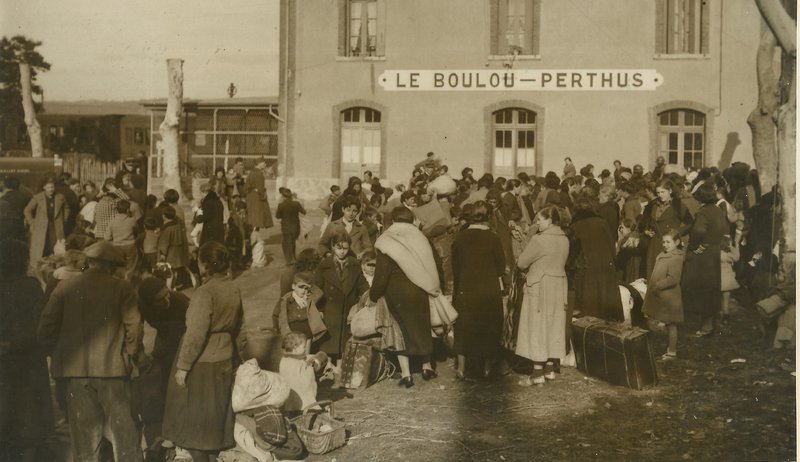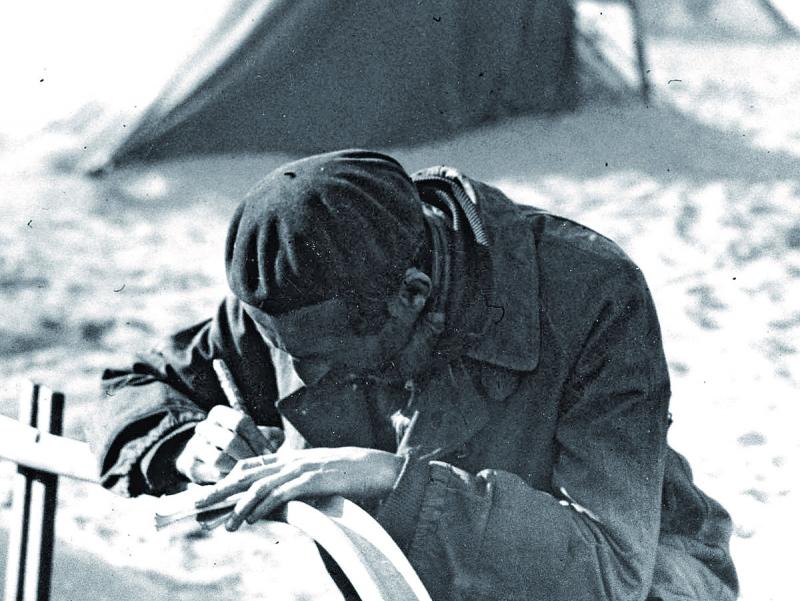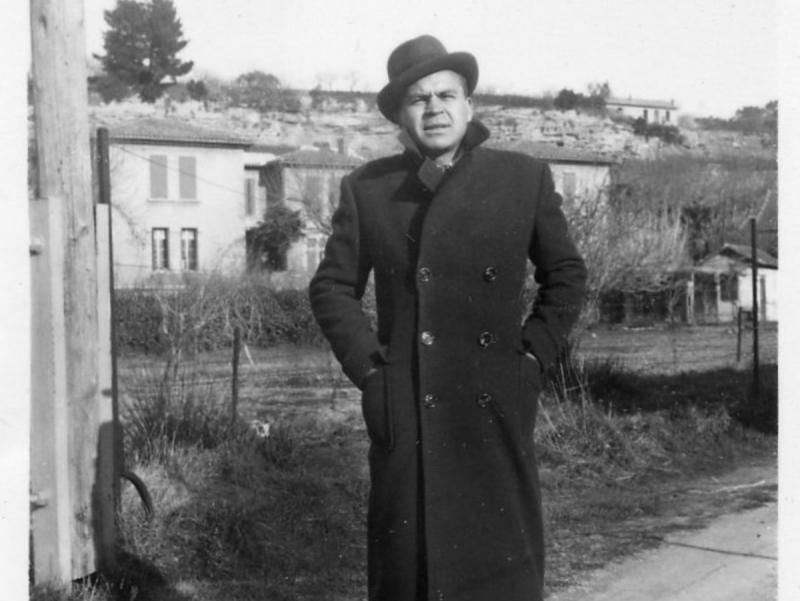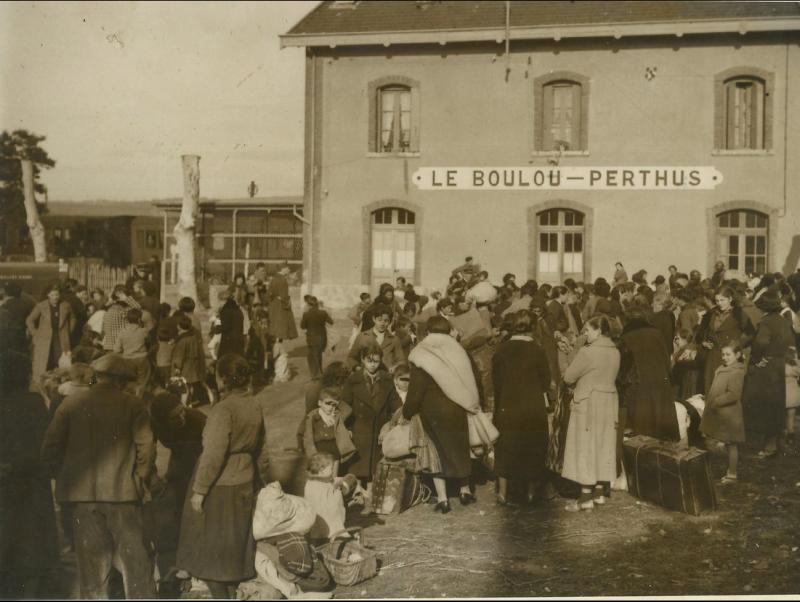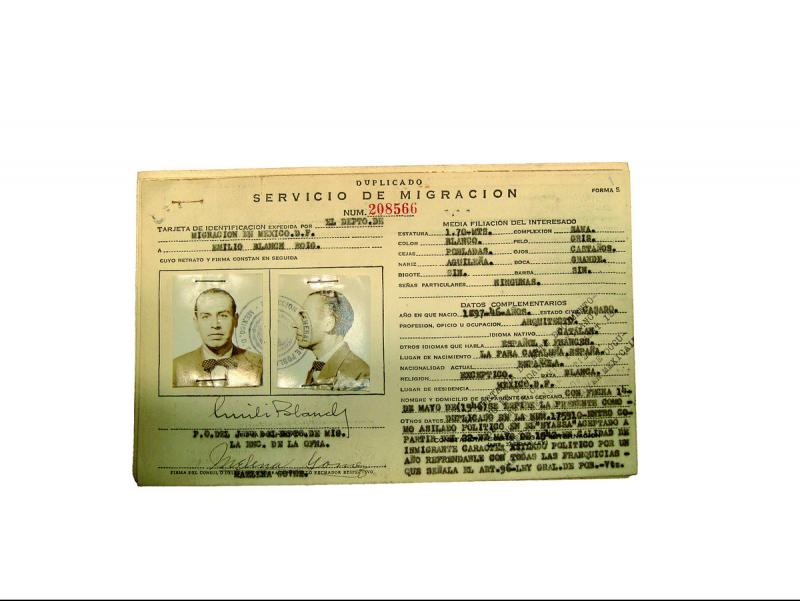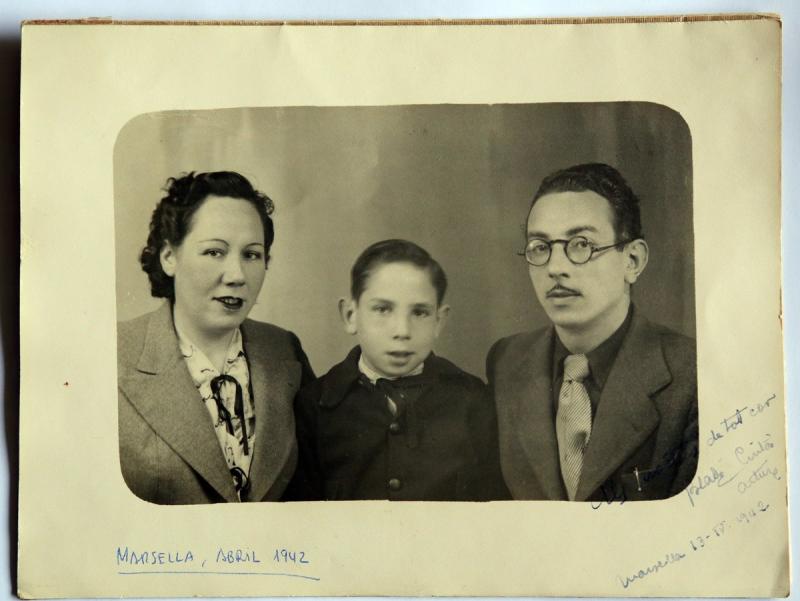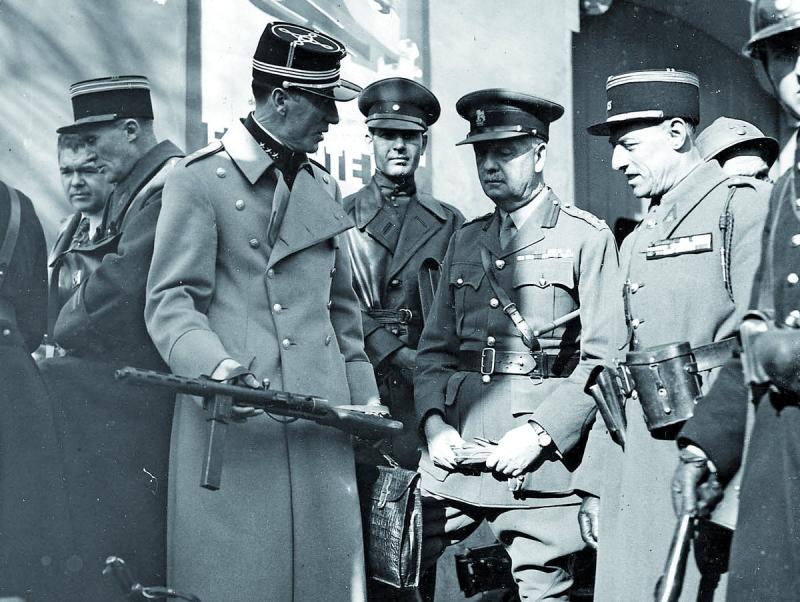Josep Vilalta Pons
February 7, 1939
“We must pass through L’Agullana and from there to La Jonquera. [...] We arrive at L’Agullana, where we manage to get breakfast by paying with tobacco. [...] We arrive at La Jonquera full of fear. There’s a procession of people and cars that cannot go forward or back. When we arrive at Pertus, it might be one in the afternoon. All of the surrounding mountains are filled with people who are delaying entering France. We decide to move on. We walk along the Spanish side and find a place to rest and sleep. All houses are abandoned. In the middle of the road that divides the two countries there are soldiers and guards. [...] There’s a long line of people, cars and all kinds of material traipsing down the road to France. [...] I sleep on the floor of a house where we are able to make a fire in the hearth. [...]
February 9, 1939
When I decide to leave, people on the Spanish side are running and it turns out they’re being pursued by the first Franco troops to arrive at the border. From a hundred metres away, I witness the change of sides and the first demonstration of fascist enthusiasm. When I decide, for safety, to cross to the French side, we meet the Ton de Vilanova and enter France proper; accompanied by the “allez, allez” of the French soldiers and guards, we head down the road. We sleep under some trees about five kilometres from the village of El Voló. With their fires here and there, the scattered refugees make a unique spectacle.
Saint-Cyprien, March 3, 1939
[...] We’ve heard that within days the teachers among us will leave this camp and move to another one towards Tolouse with better conditions. I was on the first list they took, so if there is any logic, I’ll be the first to leave. I don’t know if the police noted down your names. I don’t remember if I told you in another letter. On Monday it will be two weeks that we’ve been demanding a transfer to the aforementioned camp. [...] I see that your life is good. I’m fine and better than many of my colleagues. What is annoying here is the eternal colitis. You get a bit better and then you eat and get it again. [...] I’ll take more bismuth and I think I’ll be fine soon. You have colitis and you’re starving hungry. I eat toast with some milk and chocolate. There’s no way I’m trying the beans or lentils. As you can easily imagine, the problem is getting to a place with better sanitary conditions, and it seems we’ll do that soon.
Saint-Cyprien, March 4 and 5, 1939
[...] You shouldn’t worry so much about me. I already told you in my previous [letters], I’m standing up to it well. The life we lead here would be savage if it weren’t for the activities we created ourselves. There are a number of camps that run about a kilometre in length and are full of shacks and huts of the most varied forms. These reach to a few metres from the beach, where we satisfy one of our physiological needs.”

